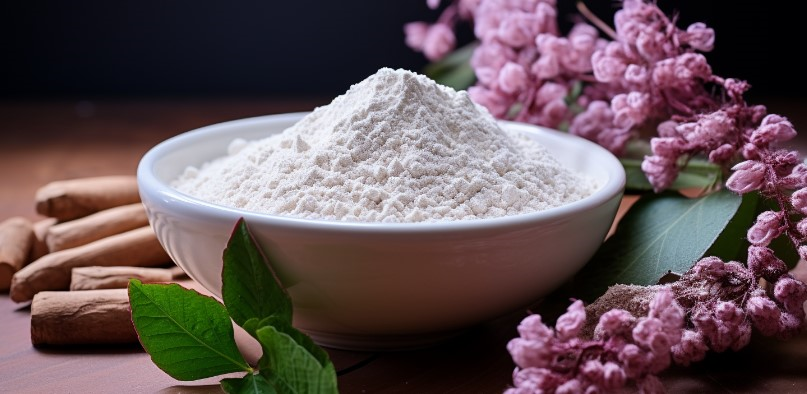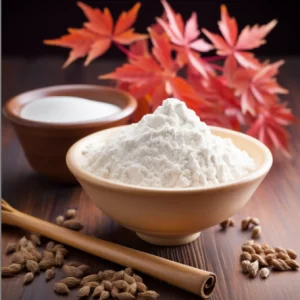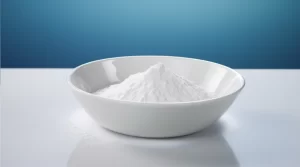Resveratrol y salud

El resveratrol es un tipo de compuesto polifenólico no flavonoide que se encuentra principalmente en la uva, el eléboro, el knotweed y otras plantas. Su estructura es similar a la del dietilestilbestrol sintético. Se considera un fitoestrógeno y puede prevenir los efectos secundarios de los estrógenos graves que se producen con los tratamientos alternativos.
Los estudios han descubierto que el resveratrol tiene efectos antiagregantes plaquetarios, antioxidantes, antiinflamatorios, antienvejecimiento y de prevención de tumores.
Resveratrol antioxidante
El resveratrol es un antioxidante natural que ejerce sus efectos principalmente eliminando los radicales libres, inhibiendo la generación de radicales libres y la peroxidación lipídica, y regulando la actividad de las enzimas relacionadas con los antioxidantes y la expresión génica.
Éste es también uno de los mecanismos importantes por los que el resveratrol previene e interviene en determinadas enfermedades, como antitumoral, protección cardiovascular, prevención de daños en tejidos y órganos, protección hepática, antichoque, etc.
Efecto protector cardiovascular del resveratrol
En las enfermedades cardiovasculares, el resveratrol puede ser antiinflamatorio, antioxidante, regular la expresión de diversos factores, afectar a la aterosclerosis, la hipertensión, la cardiopatía isquémica, la insuficiencia cardíaca y otros procesos de enfermedades cardiovasculares, y desempeñar un papel protector. la función cardíaca, el resveratrol puede ser una intervención candidato para la prevención y el tratamiento de enfermedades cardiovasculares.
Resveratrol resveratrol y diabetes tipo 2
El resveratrol tiene diversos efectos fisiológicos, como la reducción del azúcar en sangre, la mejora de la resistencia a la insulina, la regulación del metabolismo lipídico anormal, la reducción de los factores inflamatorios, la antioxidación, la inhibición de la agregación plaquetaria, la relajación de los vasos sanguíneos y el aumento de la producción de NO. Sin embargo, la mayoría de los resultados de las investigaciones actuales se derivan de experimentos in vitro o en animales y aún deben estudiarse y confirmarse mediante experimentos clínicos en humanos.
Efecto neuroprotector del resveratrol
Los estudios han demostrado que el resveratrol puede inhibir significativamente la producción de ADN durante el daño oxidativo a los microsomas hepáticos, las mitocondrias cerebrales y los sinaptosomas, y es muy eficaz en la prevención y el tratamiento de la hepatitis viral, la enfermedad de Parkinson, la enfermedad de Alzheimer y otras enfermedades. efecto.
Los estudios han descubierto que el resveratrol puede etiquetar las quinasas y las células nerviosas, y tiene buenos efectos preventivos y terapéuticos en las enfermedades degenerativas de las personas mayores, como la enfermedad de Parkinson, la demencia, las enfermedades reumáticas, etc.
El resveratrol inhibe la liberación del factor neurotóxico NO y ejerce un efecto protector sobre las neuronas al reducir la expresión fosforilada de p38 y ERK en la microglía activada por LPS y aumentar la expresión de la proteína ikBa degradada y la iNOS.
Resveratrol y pérdida de peso
El resveratrol, solo o en combinación con otros compuestos naturales, puede actuar sobre los adipocitos a través de diversos mecanismos, reducir la actividad de los adipocitos, inducir su apoptosis y promover su descomposición. Tiene cierto efecto sobre la pérdida de peso, pero es relativamente Dosis elevadas pueden causar efectos secundarios tóxicos.
El uso simultáneo de múltiples compuestos vegetales no sólo puede reducir la dosis de cada compuesto y evitar posibles efectos secundarios tóxicos, sino que también puede afectar al mismo tiempo a múltiples vías de señalización, como la producción de adipocitos, la apoptosis y la descomposición. El efecto sinérgico de estos fitoquímicos puede hacer que los medicamentos sean más seguros y eficaces.
Instrucciones de dosificación del resveratrol
En los estudios de seguridad del resveratrol en humanos, la dosis oral única más alta fue de 5 g/70 (kg de peso corporal), y la dosis de ingesta repetida más alta fue de 0,9 g/día. En estos estudios, las reacciones adversas que se produjeron fueron medias. Leves, algunos estudios sugieren que los efectos secundarios no están claramente relacionados con la dosis tomada. Debido a la falta de información, mi país aún no ha formulado SPL y UL.
Principales fuentes alimentarias de resveratrol
El contenido de resveratrol es relativamente alto en plantas o frutas como las uvas, las moras, las piñas, los cacahuetes, el cacao en polvo, los brotes de bambú de invierno, la coliflor blanca y el arroz salvaje.
Proveedor de resveratrol: www.backvita.com
Correo electrónico: [email protected]
Teléfono: +86 (029) 8187 2325
Referencias:
[1] Sociedad China de Nutrición. Ingesta de referencia de nutrientes dietéticos para residentes chinos. Beijing: Science Press, 2014. [2]Gu J , Hu W , Zhang DD . Resveratrol, una fitoalexina polifenol, protege contra la cardiotoxicidad inducida por doxorrubicina[J]. Journal of Cellular & Molecular Medicine, 2015, 19(10):2324-2328.[3]Catterall , F. , et al. "Differential modulation of the genotoxicity of food carcinogens by naturally occurring monomeric and dimeric polyphenolics". Environmental and Molecular Mutagenesis 35.2(2000):86-98.[4] Rayalam S, MA Della-Fera, Baile CA . Sinergismo entre el resveratrol y otros fitoquímicos: Implicaciones para la obesidad y la osteoporosis[J]. Molecular Nutrition & Food Research, 2011, 55(8).



